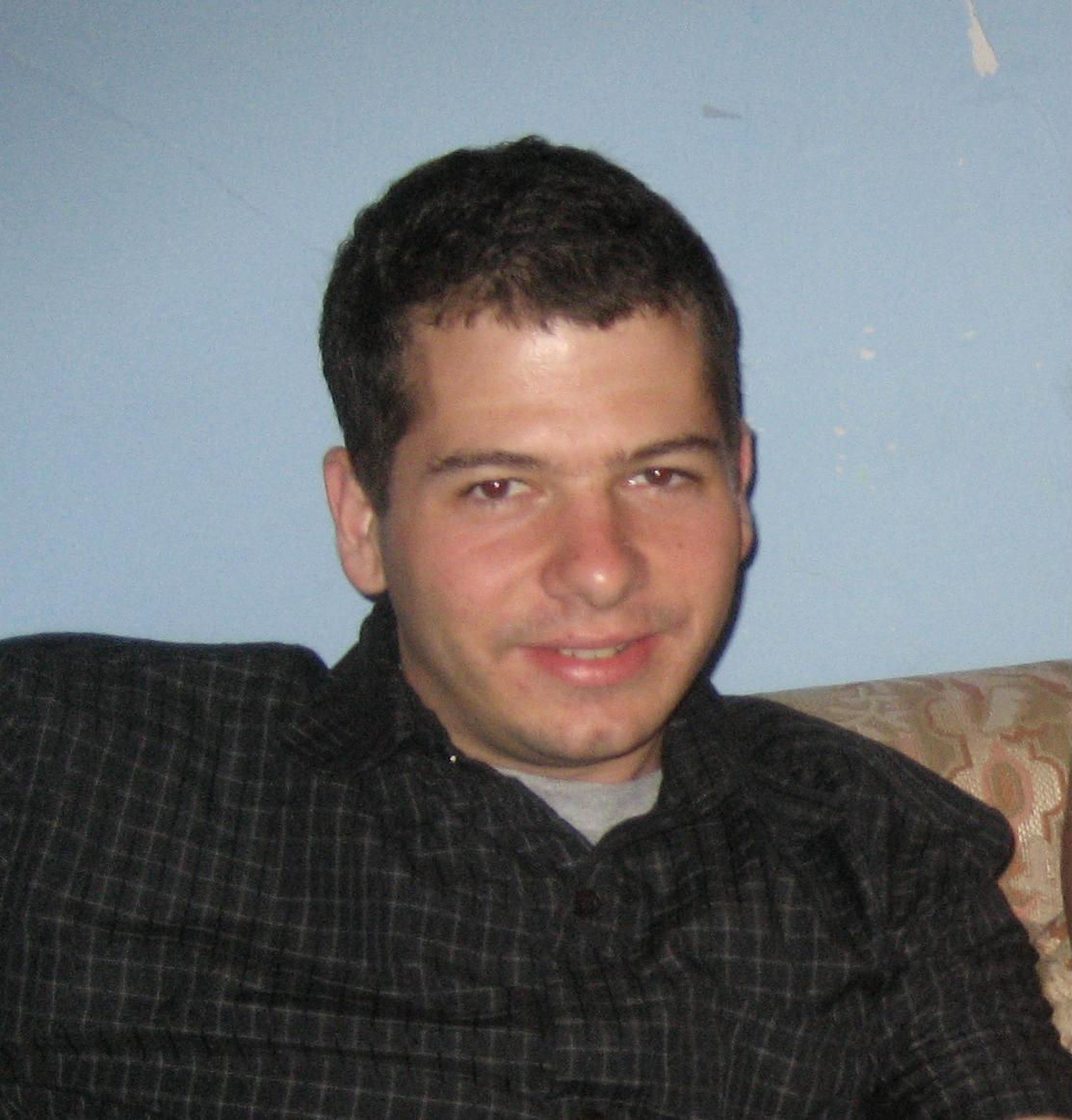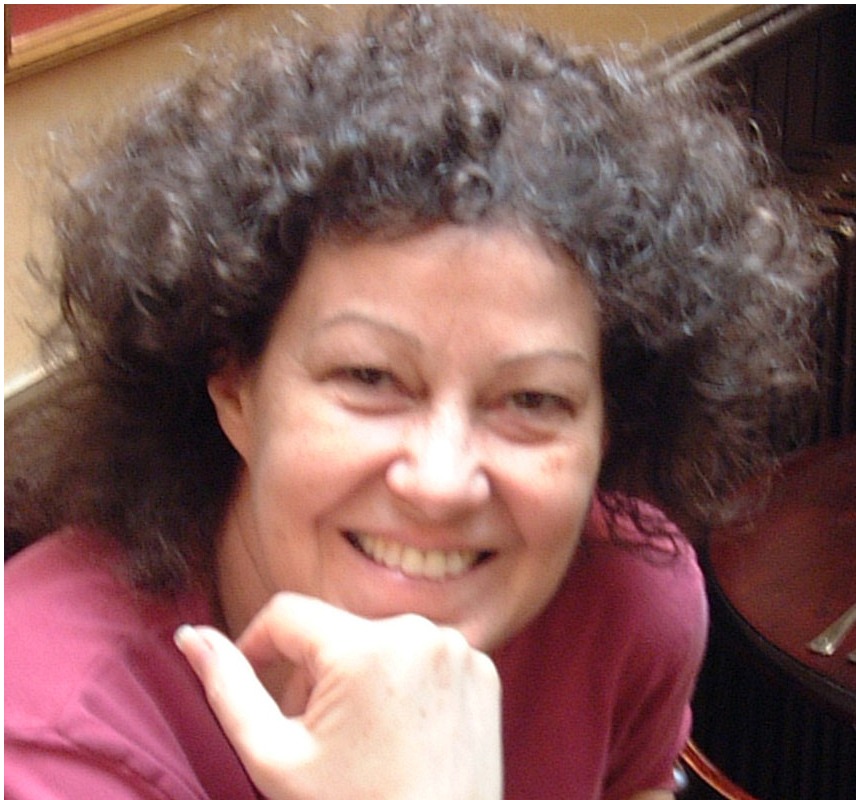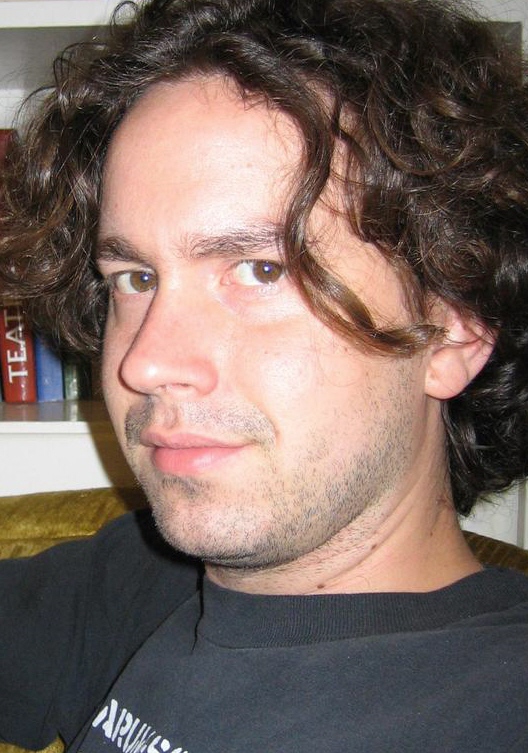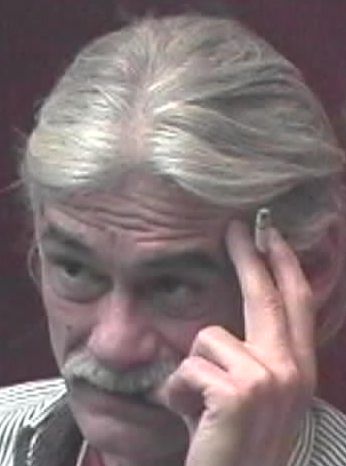|
Andrew Chapman
Nancy Condee
Chip Crane
Lucy Fischer
Olga Klimova
Michelle Kuhn
Marcia Landy
David MacFadyen
|
|
|
Andrew Chapman
Graduate Student
Department of Slavic Languages and Literatures
University of Pittsburgh
Andrew Chapman received his B.A. in Russian from the University of Rochester in 2004. He is currently a second-year graduate student in the Department of Slavic Languages and Literatures at the University of Pittsburgh, teaching Russian language and completing coursework in literature and film.
|

|
|
Nancy Condee
Slavic Department, University of Pittsburgh
Publications include Soviet Hieroglyphics: Visual Culture in Late 20c. Russia (1995); Endquote: Sots-Art Literature and
Soviet Grand Style, with Marina Balina and Evgeny Dobrenko (2000); and Antimonies of Art and Culture: Modernity, Postmodernity, Contemporaneity
, with Terry Smith and Okwui Enwezor (2008), and The Imperial Trace: Recent Russian Cinema (in progress). She is Executive Director of the CD-rom on Thaw cinema, Kino ottepeli (Moscow: Artima Studio, 2002.
Her work, with Vladimir Padunov and separately, has appeared in The Nation, The Washington Post, October, New Left Review, Sight and Sound, as well as major Russian cultural journals (Znamia, Voprosy literatury, Novoe literaturnoe obozrenie, Iskusstvo kino).
She has worked as a consultant for the E
dinburgh Film Festival, the Library of Congress, and Public Broadcasting for several Frontline documentaries. She is Senior Associate Member at St. Antony's (Oxford) and has served (2000-06) as Chair of the Board of Directors of the National Council on Eurasian an
d East European Research (NCEEER), the largest US grant agency for federal funding of basic research in the former second world.
|

|
|
Chip Crane
Chip Crane Received a B.A. in Theatre Studies form Georgia State University in 2001 and an M.A. in theatre and Performance Studies from the University of Pittsburgh in 2005. He is currently in his fourth year of graduate study at the University of Pittsburgh. |

|
|
Lucy Fischer
Professor of Film Studies and English
Director of the Film Studies Program
University of Pittsburgh
Fischer is the author of seven books: Jacques Tati (G.K.Hall, 1983), Shot/Countershot: Film Tradition and Women's Cinema (Princeton, 1989) , Imitation of Life (Rutgers, 1991), Cinematernity: Film, Motherhood, Genre (Princeton University Press, 1996) , Sunrise (British Film Institute, 1998), and Designing Women: Art Deco, Cinema and the Female Form (Columbia University Press, 2003) and Stars: The Film Reader (co-edited with Marcia Landy/ Routledge in 2004.) She is presently at work editing two additional books: American Cinema of the 1920s: Themes and Variations (for which she will write both an introduction and a chapter on the year 1929) to be published by Rutgers University Press and Teaching Film (co-edited by Patrice Petro for the Modern Language Association) .
She has published extensively on issues of film history, theory and criticism in such journals as: Screen, Sight and Sound, Camera Obscura, Wide Angle, Cinema Journal, Journal of Film and Video, Film Criticism, Women and Performance, Frauen und Film, Film Quarterly, Biography, etc. Her essays have been anthologized twenty-seven times in volumes of film history, criticism and/or theory.
She has held curatorial positions at The Museum of Modern Art (New York City) and The Carnegie Museum of Art (Pittsburgh), and has written catalog essays for exhibits at the Wight Gallery (Los Angeles) and the Neuberger Museum (Purchase, NY). She has been the recipient of a National Endowment for the Arts Art Critics Fellowship as well as a National Endowment for the Humanities Fellowship for University Professors. |

|
|
Olga Klimova
Graduate Student (Second year)
University of Pittsburgh
Department of Slavic Languages and Literatures
Olga received her Specialist degree in Cultural Studies from Belarusian State University in Minsk, Belarus. She completed her Master's degree in Popular Culture at Brock University, Canada, and in August 2005 defended her thesis "The Encounter with The Real and the Post-Soviet Trauma: Fantasy Construction in Russian Popular Cinema."
Olga worked as a coordinator and a project manager at the Center for Gender Studies of the European Humanities University, Belarus, in 1999 and 2001-2002.
She has taught a number of film and gender courses at the Department of Communication, Popular Culture and Film at Brock University, and currently teaches Russian language courses at the University of Pittsburgh's Slavic Department.
Her current research interests include cultural theory, Lacan and Zizek, post-Soviet popular culture and popular cinema, cultural representations of trauma, Russian youth culture and cinema, and much more. |
|
|
Michelle Kuhn
Graduate Student
Department of Slavic Languages and Literatures
University of Pittsburgh
Michelle received a B.A. in International Relations and Russian from Beloit College in 2002 and her M.A. from the University of Pittsburgh in 2005. She is currently in her fourth year of graduate study at the University of Pittsburgh. |
|
|
Marcia Landy
Distinguished Service Professor of English and Film Studies with a secondary appointment in the Department of French and Italian Languages and Literatures
University of Pittsburgh
Landy's books include Fascism in Film: The Italian Commercial Cinema, 1929-1943 (1986); Imitations of Life: A Reader on Film and Television Melodrama (1991); British Genres: Cinema and Society, 1930-1960 (1991); Film, Politics, and Gramsci (1994); Queen Christina (1996, with Amy Villarejo); Cinematic Uses of the Past. (1996); The Folklore of Consensus: Theatricality and Spectacle in Italian Cinema 1929-1943 (1998); Italian Film (2000); The Historical Film: History and Memory in Cinema (2001); Stars: The Film Reader (2004, co-edited with Lucy Fischer); and Monty Python’s Flying Circus (2005). Her essays on cultural theory, cinema history, national cinema, and genres have appeared in anthologies and in such journals as Screen, Post Script, Jump Cut, Film Criticism, The Journal of Film and Video, New German Critique, French Review, Cinema Journal, Rethinking Marxism, boundary 2, Journal of Romance Studies, American Imago, and Critical Quarterly. |
|
|
David MacFadyen is a graduate of the University of London and UCLA. He is Professor of Slavic Languages and Literatures at UCLA and has authored books on subjects ranging from the poetry of Joseph Brodsky (Joseph Brodsky and the Baroque, 1999; Joseph Brodsky and the Soviet Muse, 2000), to Russian popular songs (Red Stars: Personality and the Soviet Popular Song after 1955, 2001; Èstrada?! Grand Narratives and the Philosophy of the Russian Popular Song 1982-2000, 2001; Songs for Fat People: Affect, Emotion and Celebrity in the Soviet Popular Song, 1900 to 1955, 2002), to animated and feature films of the Soviet Union (The Sad Comedy of Èl'dar Riazanov: An Introduction to Russia's Most Popular Filmmaker, 2003; Yellow Crocodiles and Blue Oranges: Russian Animated Film after World War Two, 2004). Two monographs with Routledge recently went to press: Russian Culture in Uzbekistan and Russian Television Today: Primetime Drama and Comedy. A collected edition of articles and archival materials relating to Anna Akhmatova was published late in 2006; he is currently busy building a portal dedicated to independent musicians and songwriters from all across the former Soviet Union. |
|
|
Gerald McCausland
Visiting Lecturer
University of Pittsburgh
Department of Slavic Languages and Literatures
Gerald McCausland holds degrees from the University of Pittsburgh (Ph.D., Russian), Middlebury College (BA, Political Science; MA Russian) and the University of Massachusetts at Amherst (MA, German). At the University of Pittsburgh he currently teaches courses in Russian language, literature, and culture, and has taught Russian cinema and folklore. His research interests include contemporary Russian culture and critical theory, with particular emphasis on post-Soviet subjectivity and its role in the formation of collective identities. His publications include articles on Vladimir Sorokin, Viktor Pelevin, and Andrei Platonov as well as translations and cinema reviews. His PhD dissertation, "The Post-Soviet Condition: Cultural Reconfigurations of Russian Identity," was defended at the University of Pittsburgh in 2006. |
|
|
Vladimir Padunov
Associate Professor, Department of Slavic Languages and Literatures
Associate Director, Film Studies Program
Director, Russian Film Symposium
Deputy Editor, KinoKultura
Co-Editor, Studies in Russian and Soviet Cinema
University of Pittsburgh
Padunov received his B.A. from Brooklyn College, and his M.A. and Ph.D. in Comparative Literature at Cornell University. He has taught at the University of Iowa and Hunter College, as well as in Germany and Russia.
Together with Nancy Condee, he directed the Working Group on Contemporary Russian Culture (1990-93), supported by the American Council of Learned Societies and the Social Science Research Council. His work has been publish d in the US (The Nation, October, Wi deAngle), the UK (Framework, New Left Review, New Formations), an d Russia (Voprosy literatury, Znamia, Iskusstvo kino). His areas of research include Russian visual culture, narrative history and theory, film history.
Recent publications:
"Storing an d Restoring History: Gosfil'mofon d an d the Tenth Belye Stolby Archival Film Festival." KinoKultura 12 (April 2006).
"Swan Song: The Sa d Fate of Gregory Ratoff's Song of Russia (1944)." KinoForum 1 (2006): 45-47.
"Imperial Acorn —> National Oaks: The Eighth KinoForum." Kinokultura (July 2005).
"Stars Above Almaty: Kazakh Cinema Between 1998 and 2003." KinoKultura 3 (Jan 2004).
"Moscow's Silver Anniversary: XXV Moscow International Film Festival (20-29 June 2003)." KinoKultura 1 ( July 2003).
"Subtropical Cinema: Kinotavr, Collective Heroes, and Small Screens," with Nancy Condee. KinoKultura 1 (July 2003).
|

|
|
Elena Prokhorova received her Ph.D. from the University of Pittsburgh. She teaches Russian, Film and Cultural Studies at the College of William and Mary. Her publications on Russian and Soviet media have appeared in SEEJ, Slavic Review, and edited anthologies. Elena is a regular contributor to the online journal Kinokultura. |
|
|
Dmitrii Saveliev graduated from the Russian section of the Department of Philology of Leningrad State University in 1990. He worked as an editor at the journal Seans, where he became deputy editor in 1998. He was also deputy editor and a contributor of several articles to the seven-volume Noveishaia istoriia otechestvennogo kino, 1986-2000 (Seans, 2001-2004). He was deputy editor of the Russian journal Premiere between 2000 and 2002, and between 2002 an d 2003 the deputy editor of Kinoprotsess. He has been the editor of the culture section of Vogue in Russia since 2003. Since 2004 he has been the editor of the television show Kino v detaliakh (STS). He has published in a number of journals, including Afisha, Cinema, Ekran, Ekspert, Ezhene del'nyi zhurnal, GQ, Iskusstvo kino, Kino Park, Novoe vremia, Ogonek, Playboy, Premiere, Seans, Sovetskii ekran, Stas, Stolitsa, Vi deotop, Vogue, and others; and in newspapers such as Ekran i stsena, Izvestiia, Kommersant- daily, Kul'tura, Moskovskie novosti, Moskovskii komsomolets, Novaia gazeta, Osobaia gazeta, Ve domosti, Vremia MN, and others. In 1998 he was awarded the Levitin Prize by the Russian Guild of Film Scholars and Critics. |
|
|
Dawn Seckler
PhD Candidate in the
Department of Slavic Languages and Literatures
University of Pittsburgh
Seckler received her MA in Russian Literature from the University of Pittsburgh, 2001. Currently she is embarking on her dissertation on the Russian Buddy Film. Publications include reviews of contemporary Russian films (e.g., Company 9 dir. Fedor Bondarchuk; Dead Man’s Bluff , dir. Aleksei Balabanov; The Suit , dir. Bakhtier Khudoinazarov), “The Absence of Historical Time in Dostoevskii’s Besy,” and the translation of Evgenii Margolit’s article, “Landscape, with Hero.”
|
|
|
Oleg Sulkin
Film critic and journalist. Member of the Fimmakers Union of Russia, member of Film Critics Guild of Russia. Graduated from the Moscow State University (MGU), history an d theory of art. Worked at Novosti Press Agency, Sovetskii Ekran magazine, was an editor-in-chief of the Sovetskii Film monthly magazine. Together with Mikhail Ivanov created and co-wrote the first three issues of the annual Videoguide. Wrote hundreds of articles, essays and reviews on film, arts and culture. Wrote a book Iuri Ozerov (together with Nikolai Sumenov), and brochures on Natalia Andreichenko and Oleg Iankovskii. In 1995 moved to the U.S.A. Lives in New Jersey, works as a staff film critic and writer at Novoye Russkoye Slovo, a Russian-American daily newspaper published in New York. In 1999-2004 hosted a weekly radio show Film Hour on a Russian-American radio People's Wave. Contributes regularly to Itogi weekly magazine as its New York correspondent. Hea ds the film selection for the annual Russian Film Week in New York. Participated in Russian Symposiums at the Pittsburgh University for several years. Gave a lecture on “Enemy in Contemporary Russian Film” at the Havighurst Center for Russian and Post-Soviet Studies at the Miami University, Ohio in April, 2004. Writes for www.kinokultura.com.
|
|
|
Natasha Sumetsky received her BA in Slavic Studies and her BS in Psychology from the University of Pittsburgh in December, 2006. Since then, she has traveled to India, Brazil, and more local destinations, studying culture, identity, yoga, meditation, and more. She intends to attend graduate school for psychology in several years.
|
|
|
Mikhail Trofimenkov graduated from the Art History Department of Leningrad University in 1988 and completed his graduate studies at the Leningrad Institute of Theater, Music, and Cinema in 1992. Since 2000 he has worked as a reporter for the Kommersant" publishing house. He has published more than 2,500 articles in Vlast', Goro d, Dekorativnoe iskusstvo, Den'gi, Iskusstvo, Iskusstvo kino, Kriticheskaia massa, Mir dizaina, Novaia russkaia kniga, Ochen' UM, Peterburgskii teatral'nyi zhurnal, Seans, Teatral'naia zhizn', Ekran, AD, Art Electronics, Fuzz, Rolling Stone, Vogue, GQ, Figaro Ma dame, an d others. He has published two books—Sergei Bodrov. Poslednii geroi (Eksmo, 2003) and Ia obeshchaiu van krov' i slezy (Limbus Press, 2006)—and has contributed articles to Sokurov (Seans, 1993), Putevo ditel' po kino (Afisha, 2003; 2nd ed. 2004), and Noveishaia istoriia otechestvennogo kino (Seans, 2001-2004). He has served on the juries of international film festivals in St. Petersburg, Angers (France), Baku (Azerbaijan), and Geneva. He is the director of the international festival program for Kinotavr and one of the founders of Faces of Love festival (Moscow, 1995-6). He has received awards for “Best Film Critic of the Year” three times: from the Russian Union of Filmmakers (November 1994), from the archival film festival in Belye Stolby (January 1999), and from the Guild of Film Scholars and Critics (May 2004). He has appeared in Evgenii Ivanov’s film Nicotine (1992) and in Sergei Potemkin’s Sunless City (2005). |
|
|

